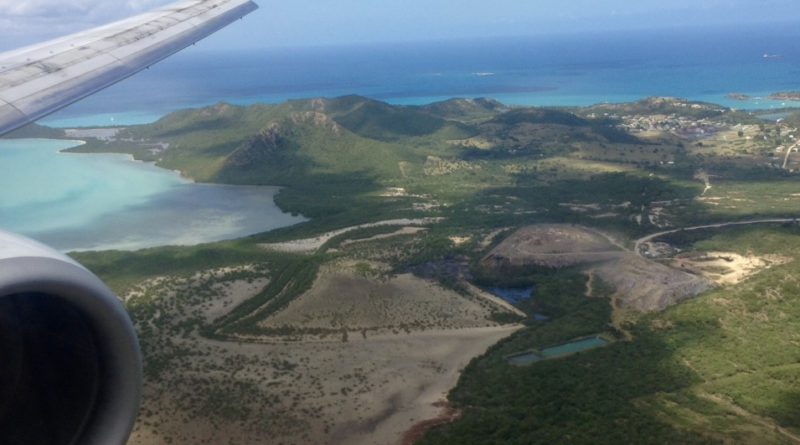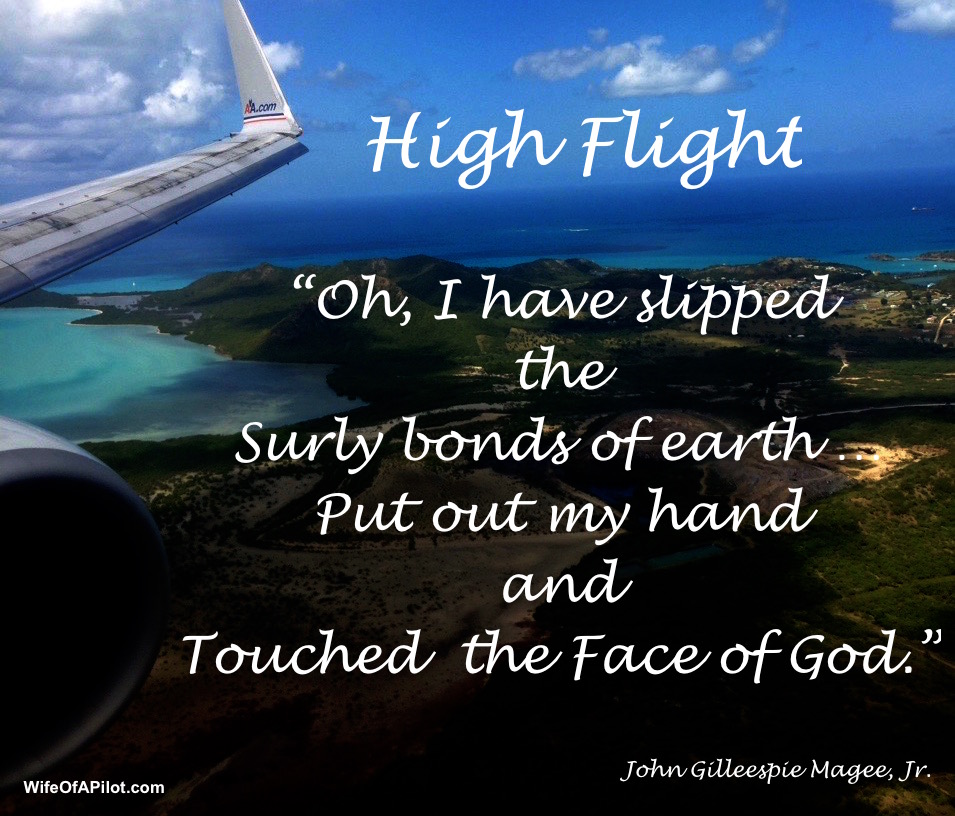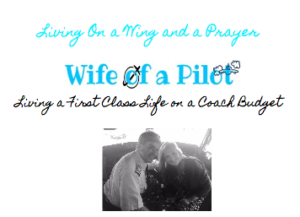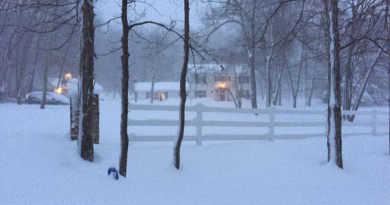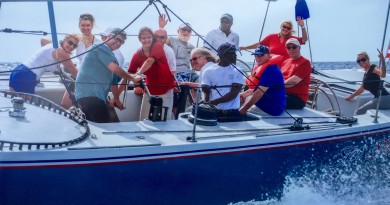High Flight
High Flight
“Oh, I have slipped the surly bonds of earth,
And danced the skies on Laughter-silvered wings;
Sunward I’ve climbed and joined
The tumbling mirth of sun-split clouds-
and done a hundred things
You have not dreamed of-wheeled and
Soared and swung High in the sunlit silence.
Hovering there, I’ve chased the shouting wind along and
Flung my eager craft through footless halls of air.
Up, up the long, delirious burning blue
I’ve topped the wind-swept heights with easy grace, where never lark, or even eagle, flew; and, while with silent, lifting mind
I’ve trod the high untrespassed sanctity of space,
Put out my hand and touched the face of God.”
John Gillespie Magee, Jr.
“High Flight” a poem that inspires aviators today, even though written in 1940. It was written by a 19-year old American named John Gillespie Magee, Jr., who served in the Royal Canadian Air Force during World War II.
Family Background:
Gillespie’s parents served as missionaries, his mother British, and his father, an American. His father served in China during the Nanking Massacre and saved over 200,000 Chinese people from being slaughtered by the Japanese. During this horrific time, his father requested help from Germany; due to Japan’s formed partnership with the Germans, his plea for help was denied. Eventually, Germany and Japan became allies in WW II.
John attended high school in England, the war cut his education short, and he saw first hand the devastation that the Nazis created. That coupled with his father’s stories gave him a disdain for Germany, prompting him to join the Canadian Air Force, as the US had not entered the war yet.
Military Training:
The Royal Canadian Air Force sent Gillespie to flight training in England; he trained in a Spitfire, a single-seat fighter, an airplane designed to perform at high altitudes. On a training mission, 30,000 feet above England, John formulated the words to the poem, “High Flight.” The words came to him while in a euphoric state. His logbook that day logged an altitude of over 10,000 feet high. Flying at that height can cause the human body to experience symptoms of hypoxia and oxygen deprivation.
On completing “High Flight,” he sent a letter to his parents that included this poem. The poem boasts to his parents about what he had done, I have, “done a hundred things/ you have not dreamed of,” I have flown, “Where never a lark or even an eagle flew.” He combined his words with several lines from other poems, “… and touched the face of God,” from “The Blind Man Flies.” “For I have danced the streets of heaven, and touched the face of God,” and “on laughter-silvered wings.” is from “New World.”
A few months after his parents received John’s letter, he and another pilot were tragically killed in a mid-air collision while returning from a training exercise.
The Story Doesn’t End There…
John’s father served in ministry at Saint John’s Episcopal Church in Washington DC, where he worked as the curator. His father had this beautiful poem printed in a church publication. Two years later, the poem was displayed in the Library of Congress. His father continued to minister; he officiated the funeral for Franklin D. Roosevelt and was a chaplain for Harry S. Truman and Yale.
After World War II, his father testified against the Japanese in trials for war crimes. His witness was invaluable; he described the atrocities and provided videos he filmed.
The Rest is History:
“High Flight” poem has gone on to live in the hearts of many aviators.
-Royal Canadian Air Force- Official Poem
-Gemini 10-Carried it into Space
-President Reagan-After, the Challenger disaster, used it in his speech.
Coaching Questions
When we are true to ourselves and living our passion, life will become effortless as flight, and there are moments when you feel you can “put out your hand and touch the face of God.”
- What family background did you come from, and how has that affected how you look at the world? Positively or negatively?
- What is your life makes you sacrifice it all to see it completed in you?
- What activities bring you joy and allow you to feel that you are living your God-given mission
- What type of poem could others read about you, and would that describe your passion?
- What do you need to do today to achieve your passion?


